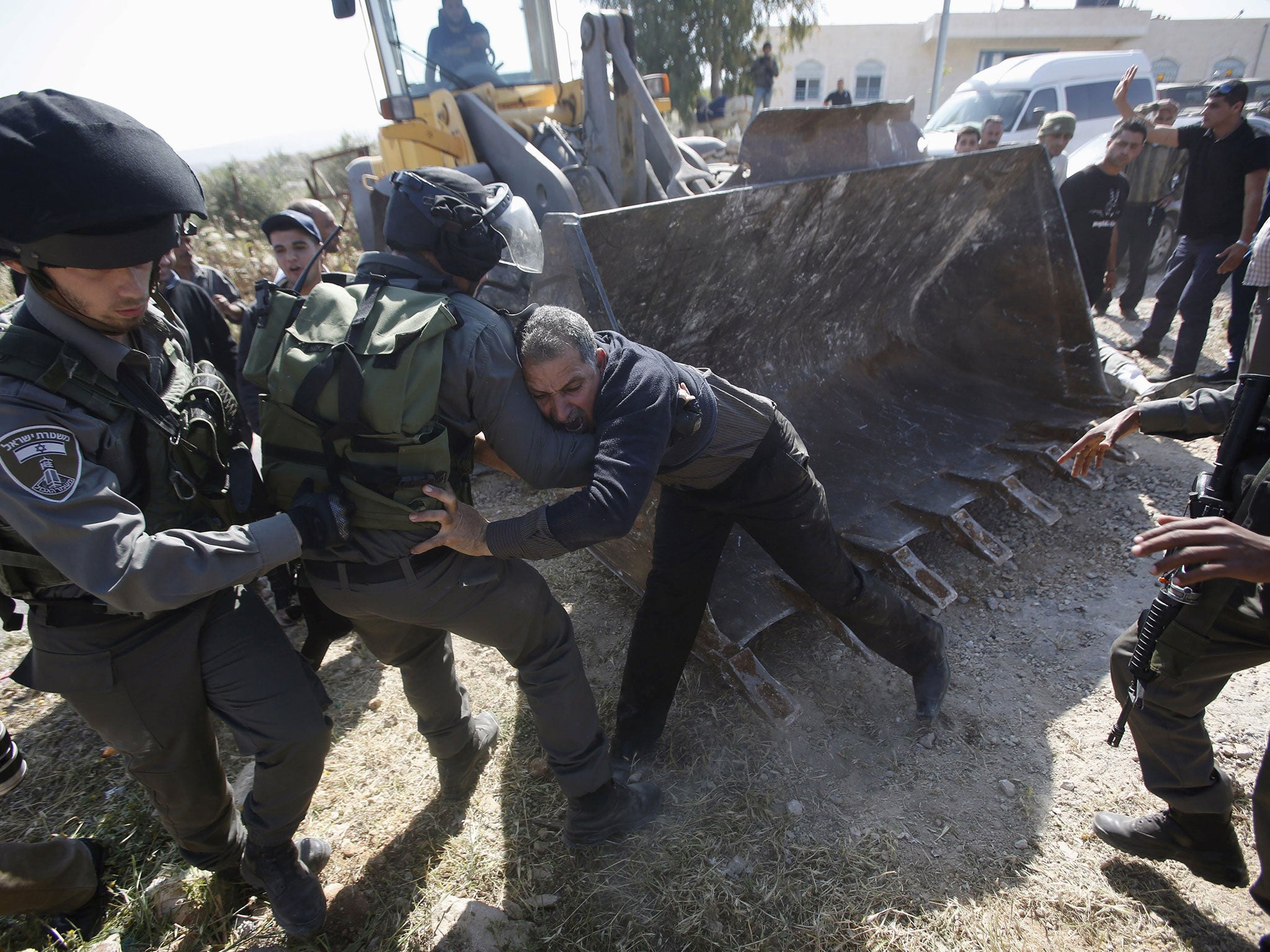British Government condemns Israel’s 'forced resettlement' of ethnic minority groups
Middle East minister says forced resettlement has a 'devastating' impact on Bedouin communities

Your support helps us to tell the story
From reproductive rights to climate change to Big Tech, The Independent is on the ground when the story is developing. Whether it's investigating the financials of Elon Musk's pro-Trump PAC or producing our latest documentary, 'The A Word', which shines a light on the American women fighting for reproductive rights, we know how important it is to parse out the facts from the messaging.
At such a critical moment in US history, we need reporters on the ground. Your donation allows us to keep sending journalists to speak to both sides of the story.
The Independent is trusted by Americans across the entire political spectrum. And unlike many other quality news outlets, we choose not to lock Americans out of our reporting and analysis with paywalls. We believe quality journalism should be available to everyone, paid for by those who can afford it.
Your support makes all the difference.Israeli moves to forcibly resettle Bedouin ethnic minority groups as part of a scheme to build Jewish settlements in the West Bank are deeply concerning, the British government has said.
Ministers and diplomats have been lobbying Israeli security officials over the last month to think twice about the policy, which is seeing homes demolished and cleared to make way for settlers.
Conservative Middle East minister Tobias Ellwood said resettlement was so far having a “devastating” impact on Bedouin communities in the south of the country.
“The Government is deeply concerned about the proposals to demolish Bedouin villages in Israel. I visited the Khan al Ahmer Bedouin during my visit in October 2014 and saw at first hand the devastating impact resettlement plans had on the communities,” he told parliament.
Mr Ellwood confirmed that UK diplomats in Tel Aviv were monitoring the situation closely and were liaising with independent legal observers on the ground.
In May, officials at the UK’s embassy in Tel Aviv raised “serious concerns about the potential forcible transfer of the Bedouin” in the largely undeveloped ‘area C’ of the West Bank.
Under the Oslo Accord ‘area C’ is supposed to be “gradually transferred to Palestinian jurisdiction”. Israel however de facto controls the territory and routinely refuses to permit Palestinian development there.
British observers took particular issue with the Israeli Supreme Court’s ruling approving the demolition of the West Bank village Susiya.
International human rights groups have condemned the evictions and demolitions.
“It is a sad day when Israeli Supreme Court decisions provide legal cover for forced evictions, as in the case of [Susiya and another village in the Negev],” Sarah Leah Whitson, Human Rights Watch’s Middle East and North Africa director said in a statement after the earlier judgement.
“The Israeli government should let these communities stay where they are, not force them to move yet again.”
The organisation says there are approximately 80,000 Bedouin living in unrecognised villages in the Negev region that are under threat of demolition.
So-called ‘zoning’ policies inflicted on the region as part of the illegal occupation in many cases “effectively amount to forcible transfer”, it added.
Join our commenting forum
Join thought-provoking conversations, follow other Independent readers and see their replies
Comments